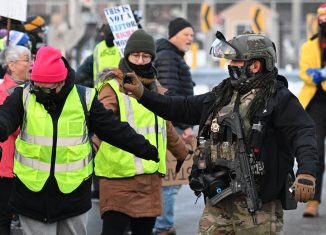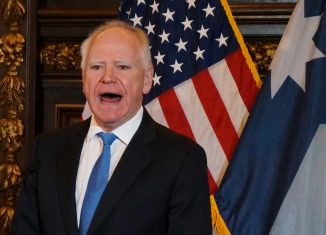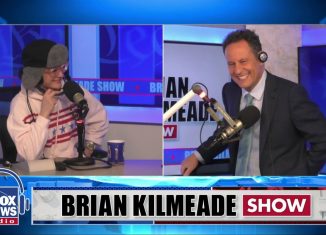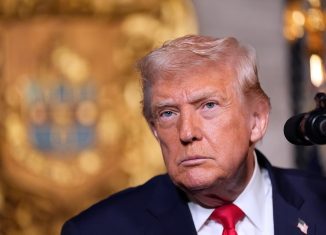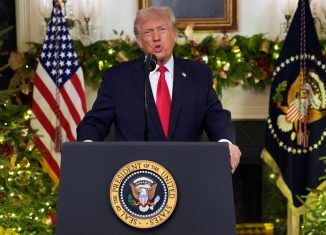VP Joe Biden Backing Nouri al-Maliki as Iraqi Prime Minister Led To ISIS Gaining A Foothold In Iraq.
Emma Sky, political advisor to General’s Ray Odierno & David Petraeus in Iraq and author of “The Unraveling: High Hopes and Missed Opportunities in Iraq” joined Kilmeade & Friends to talk about the biggest mistakes we made invading Iraq, working with our nation’s top Generals and Vice President Joe Biden’s role in the unraveling of Iraq.
Listen here:
What were the biggest mistakes we made in Iraq?
“We invaded the country based on a rationale that proved to be incorrect , that was weapons of mass destruction. We had no plan for the occupation, we created a power vacuum…we dissolved the military that totally collapsed the state and brought about civil war. The way we set up the new government structure institutionalized sectarianism. The only time we had the right policy, strategy, leadership and resources was 2007-2009 during the surge. During that period we watched the violence go down dramatically and Iraqis felt and we felt, at long last, the country was heading in the right direction. Then in 2010 there was the closely contested national elections. Iraqis of all persuasions turned out to vote. Really believing that politics was the way ahead. In that closely contested election, the incumbent, Nouri al-Maliki, lost the election by two seats. Unfortunately, instead of upholding the rights of the winning block….Vice President Biden insisted on keeping the incumbent, Nouri al-Maliki, as prime minister. He believed al-Maliki was our friend and would give us an agreement to keep troops in the country after 2011…. It was the Iranians who stepped in at this moment and brokered the new government with al-Maliki as Prime Minister. Al-Maliki in his second term pursued these terrible sectarian policies which alienated the Sunni population that led to these widespread protests and the Sunni’s looked at the Islamic State and they looked at the Iranian backed regime of al-Maliki and tragically, they decided the Islamic State was the lesser of two evils and that has allowed the Islamic State to take over a third of the country.”
Consequences of Iran brokering deal to keep al-Maliki as Prime Minister:
“When Iran brokered the deal to keep al-Maliki as Prime Minister, the arrangement was no US troops to remain in Iraq. That was the price. Iran brokered the deal in 2010 and that meant all US troops had to leave by the end of 2011.”
Ambassador Christopher Hill replacing Ambassador Crocker:
“Ambassador Hill never wanted to be Ambassador in Iraq. He didn’t have any regional experience, he was going through personal problems, it was not a place he wanted to be but he was persuaded to take the role. He came to the country with no background at all in Iraq or the region. He had no feel for the place. Iraq is hugely complex. You ended up with an embassy that had a total turnover of staff, an ambassador who really didn’t understand the place. While on the military side of the house, you had generals such as General Odierno who served fifty months…and he had learned from mistakes, he had learned from experience. You had the military side of the house with much more knowledge and they had been doing a lot of diplomatic action….captains, majors were brokering cease fires…brining everybody into the political process.”
The American Military won you over, didn’t they?
“They did. When I first went to Iraq I was kind of hostile to the military….so I wound up rolling up my sleeves working besides them and I met people who were incredibly dedicated, committed and really decent people.”
General Odierno saying Emma Sky made him a better general:
“When I first met him in ‘03 or ‘04, he thought you could achieve everything through military force. … what he learned during that period were the limitations of military power and he saw me working down on the ground at the brigade level and he asked me to become his political advisor. He said you have a different skill set and you have a completely different perspective than what we do. I think when you look at how he changed and how he learned, he almost embodies the U.S. Army during that period…it changed and adapted in a very short period and a lot of that is a credit to the leaders of that army, in particular, General Petraeus & General Odierno.”
General Odierno saying “…looking back, leaving soldiers on the ground might have helped a little bit and maybe prevented where we are now.”
“I believe what happened was the whole messaging was end of war, end of war, end of war, and it all became focused on the drawdown of troops and we gave up our soft power, our diplomatic power, when we withdrew our hard power….. if we brokered the formation of the government in 2010, we would not have the problems we see today, the Islamic State would not have risen up.”
Do you think President Obama was engaged on Iraq?
“He wasn’t engaged in the day-to-day events, he delegated that to Vice President Biden…unfortunately, Vice President Biden didn’t have the right instincts on Iraq. I wish President Obama was more engaged because if there is anybody who understands the potential people have to change, its President Obama.“


